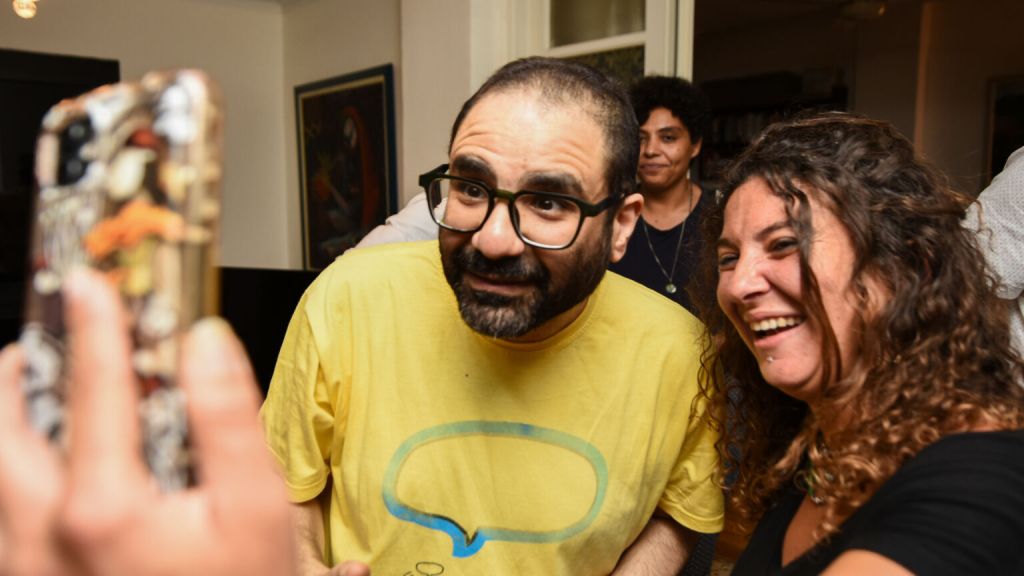I have not blogged about Coronavirus. Why? Because I have no relevant scientific knowledge or skill and this is a scientific problem, right? Everyone says so. Epidemiology is certainly not my subject and humility (not always my strong suit, to be honest) is definitely in order. So I have been all ears and no mouth. Thank goodness there are people who don't find epidemiology as boring as I do. I doubt I'd enjoy their company, to be honest, but right now I am ready and willing to love them.
From the outset, I worried that the governments of the world were caught up in a kind of mass hysteria. Leaving aside the totalitarian states (including the one whose vicious incompetence has probably given the world this learning opportunity) the response of the world's democracies has been fascinating. Firstly, our leaders played it down. It was just another flu. Then they realised they faced something that might kill voters on a scale comparable to Spanish flu, leaving grieving relatives disinclined to vote for them again. They acted on scientific advice to implement some sensible control measures. So far, so reasonable.
Then the press asked (as is its job) if the measures were enough. Discussion about how far the measures should go became a pissing contest and hysteria mounted. Opposition parties everywhere suggested they would (of course) do more and better. Popular pressure built until the current draconian measures were implemented. Even libertarians like me can't just blame the vicious statists here – our fellow-citizens cried out to be roughly dominated like the submissives they apparently are.
Governments anxious to be seen to "do something" (the curse of democratic politicians everywhere) made grand dramatic gestures – building hospitals in days that would normally have taken years. To hell with whether they were needed or not (the much bruited London Nightingale reportedly has just 19 patients) Look! We are doing stuff. Stuff you could never do yourselves!! The State and its hordes are heroes.
Now we face the risk of the worst economic crisis in centuries. Even citizens of those countries whose leaders did not stampede with the global panicked herd of brute beasts (h/t Sweden, Iceland and Portugal) will be badly affected by what is happening now. Those of us retired and living on our investments face ruin. Those earning a living by selling their labour face it too.
I have read what I can on the subject, noted the conflicting opinions, been amused by the fact that they are coloured by personal animosities between the scientists, and tweeted links to those writings on the subject that made sense to me. So what have I learned? Not much science, to be honest. Just that the laws of economics – a science every bit as imperfect as epidemiology – don't go away and nor do political divisions.
Even that learning is doubtful, affected as it no doubt is by my confirmation bias. The internet is awash with people (at times including me) using the greatest information resource in human history to prospect for nuggets of information that "prove" their opinions to be true. I try to be alert to that bias, but I must acknowledge that it exists. It draws my eye to every example of entrepreneurs developing solutions to the threat of the virus and every state agent behaving like a thug. The confirmation biases of Leftists, on the other hand, draw their eyes to noble agents of the heroic state solving problems and grasping capitalists profiting from tragedy.
Human knowledge in science advances, it seems, along as crazy a zigzag path as in other fields. Every new fact is seized upon to confirm views that are hard to shift. Extremely powerful forces are required to change human minds. The mind of Professor Neil Ferguson, for example, does not appear to have been much changed by his own scientific failures. In 2005 The Guardian ran this story;
Last month Neil Ferguson, a professor of mathematical biology at Imperial College London, told Guardian Unlimited that up to 200 million people could be killed. "Around 40 million people died in 1918 Spanish flu outbreak," said Prof Ferguson. "There are six times more people on the planet now so you could scale it up to around 200 million people probably."
Actually fewer than 500 people worldwide died. Amazingly the experience of being so bone-crushingly wrong does not seem to have impacted Professor Ferguson's self-esteem at all. There is something admirable in that. Being wrong once, doesn't mean you always will be any more than winning one bet guarantees you'll win the next. That it hasn't disinclined HM Government to take his prophecies of doom with a pinch of salt however, is not admirable at all.
What have have learned is that, as Bastiat told us long ago, problems arise when people prioritise the seen over the unseen. Professor Ferguson and his clients in government are not setting out to hurt anyone. I accept their sincere attempt to try to save lives. Their extreme focus on one seen epidemiological issue however may well cost more lives than they save when all the unseen issues they are ignoring emerge. As a commenter on this article at the Ludwig von Mises Centre's site said;
“If we want to stop traffic fatalities, we could ban cars. That’s a solution that would ‘work’. But it only ‘works’ if our sole benchmark is the number of traffic fatalities. What about liberty, moral agency and economic rights?”
Exactly. Stay safe, gentle readers, as no doubt everyone is advising you, but also stay calm. This too will pass and when one day we are looking back at it, I predict only that it will prove to have been a very different story than it seems at present. In the meantime, I commend you to this blog for a different perspective.








Leave a comment